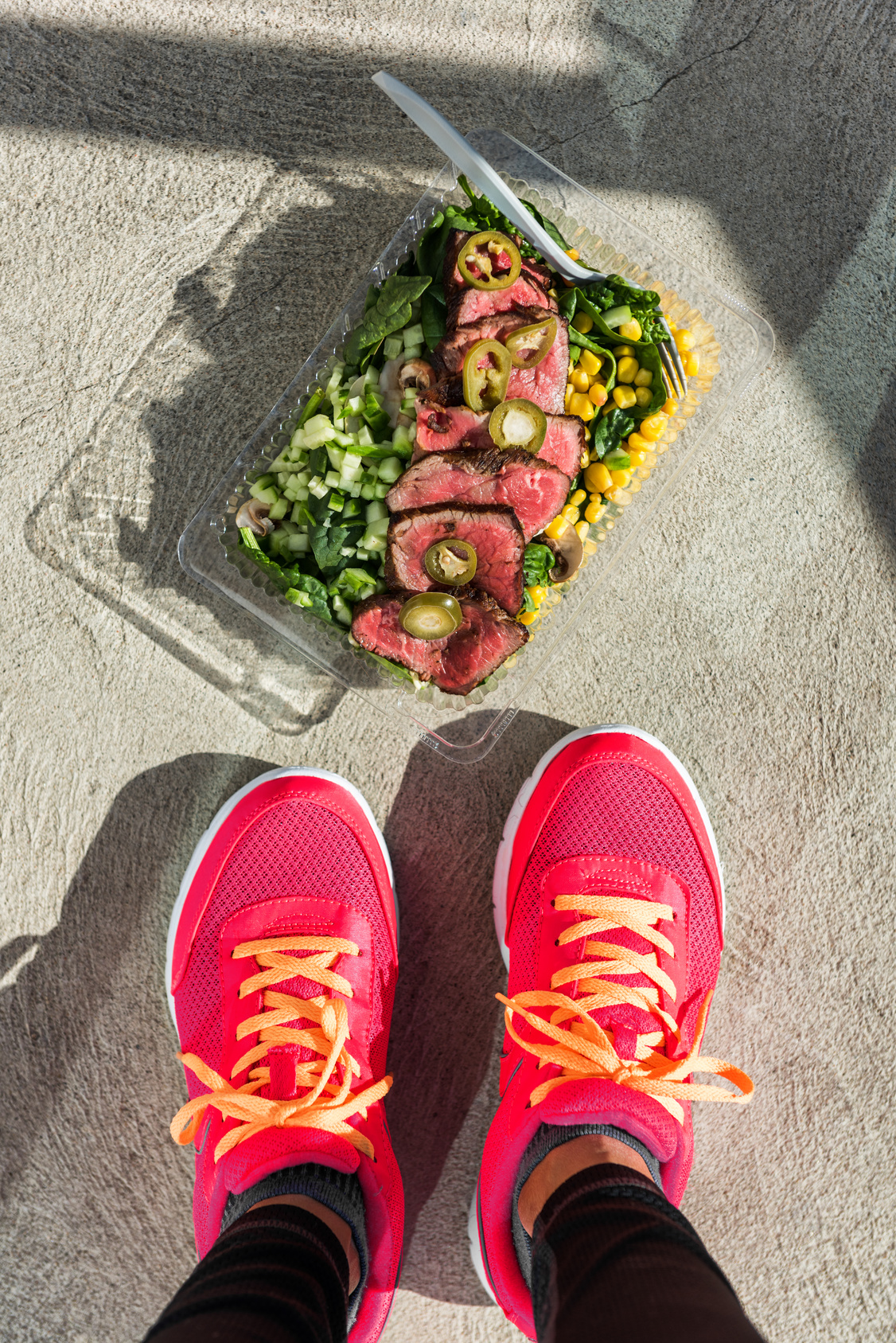Looking for meal ideas on what to eat after a run at night? Then you’ve come to the right place.
Figuring out what to eat after an evening run can be tricky. This is especially the case if you’re trying to eat healthy or lose weight.
Here’s the truth, though: Eating after night run can actually help you improve your performance and speed up recovery.
How come? That’s where today’s post comes in handy.
I’ll also briefly explain how to effectively refuel after a run, ensure proper recovery, and get ready for your next workout.
Sounds great?
Let’s get started.
The Importance of Post-Run Eating
Post-run eating is really important, and you should not avoid it even when you run late at night.
Long and hard runs have a lot to offer. They help you shed calories, lose weight, strengthen your muscles and joints, build endurance, improve cardiovascular health—I can go on and on.
However, logging the miles can take a toll on your body, especially fuel tanks.
When running, your body uses up glycogen stores to fuel activity. This causes the muscles to get partially drained of glycogen.
What’s more?
Some of the protein in the muscles also gets broken down and damaged during training, so it will need to be replaced and regenerated too.
By consuming the right foods soon after a run, you can help your body get this done faster.
Here’s the breakdown:
- Reduced muscle protein breakdown
- Restore glycogen
- Improve muscle protein synthesis
- And so much more.
Sounds great, right?
Now let’s get to when/what to eat following your evening runs.
When To Eat After a Night Run
The countdown starts the moment your cool-down ends. Aim to eat something within 30- to 45-minute post-run, especially an intense or long one.
Keep in mind that you don’t have to have a big meal.
A snack can do the trick as long as it’s rich in carbs and protein. Feel free to have the bigger meal in a few hours (but not too close to bedtime).
What to Eat After a Run at Night?
Timing is just one piece of the puzzle.
The content of your meal (or snack) is actually as important as when to eat it.
Aim for a healthy mix of carbs and protein. Carbs are key for refueling energy reserves, and protein helps rebuild your muscles.
More specifically, your meal should contain a 3:1 carbs to protein ratio.
Just make sure to choose the right carbs. Complex carbs are the best and the ones that should be eaten not only after an evening workout but throughout the day.
These take longer to digest (thus providing a steady source of fuel), contain a lot of fiber, and helps improving metabolism and the immune system.
What’s more?
Complex carbs also have magnesium, which can help soothe anxiety; therefore, eating them at night may help improve your sleep.
Healthy sources of complex carbohydrate include:
- Brown rice
- Whole-grain pasta
- Sweat potato
- Whole-wheat bread
- Lentils, beans, and peas
- Fruit
- Vegetables
Additional resource – Running with diabetes
What Not To Eat After Running At Night
What you should avoid instead when it comes to carbohydrates is the simple ones.
These provide a quick source of fuel because they’re absorbed by the body rapidly. That’s why they might force your blood sugar levels to rise, causing hunger pangs and other issues.
Simple or refined carbs are found in all types of processed foods. These are typically low in fiber and quickly digested for short-term energy.
Simple carbs are found in
- White pasta
- Pastry flour items such as bread, cakes, cookies, and rolls.
- Soft drinks
- Sugar and sweets
- Alcohol
Additional resource – How to run at night
What to Eat After a Run at Night? – Conclusion
Refueling your body after a run is key, but it’s also not rocket science. As long as you eat healthy after a a run at night, then you are okay.
Please feel free to leave your comments and questions in the section below.
In the meantime, thank you for dropping by.
Keep training strong.
David D.

